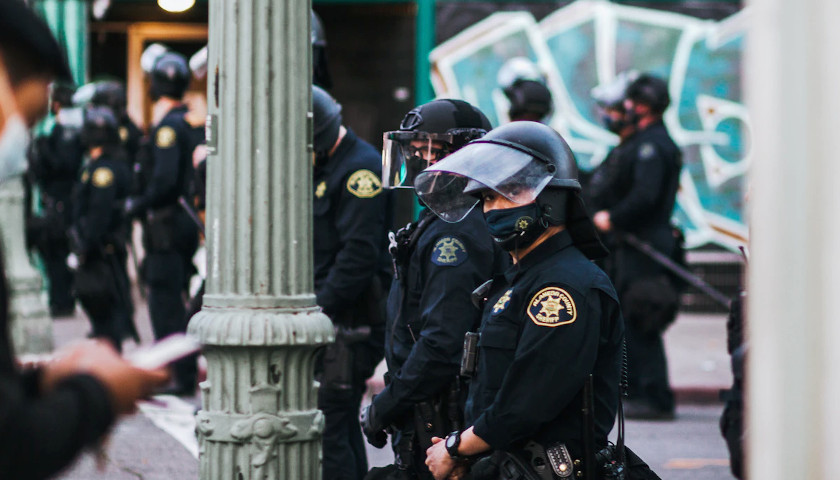by Tyler Arnold
A recent study of collectively bargained deals negotiated by police unions nationwide found these deals often scale back accountability and shield police from disciplinary action.
Before this year, public-sector collective bargaining was banned in Virginia. But after Democrats won control of the House and Senate, party leaders were able to pass legislation to end that prohibition, and Gov. Ralph Northam signed it into law. The law will go into effect in May 2021.
The new law allows local governments to permit their employees, including police, to enter into collective bargaining agreements with their unions. The law allows many disputes to be settled via binding arbitration, which means salary negotiations, disciplinary policies and disciplinary actions potentially could be decided by an arbiter.
In other states that have similar laws, the study conducted by the free-market, Virginia-based Thomas Jefferson Institute for Public Policy found unions negotiated deals many criminal justice reform advocates would oppose.
The study looked into the police union contracts in the 81 largest U.S. cities. Fifty cities restrict interrogations of an accused officer, 41 cities provide officers under investigation with information suspects do not receive, 64 cities limit disciplinary consequences for officers, 43 cities erase misconduct records after a period of time and in 48 cities, disciplinary actions can be overruled by an arbiter.
In some instances, this has led to arbiters overruling the termination of officers who killed unarmed men, such as in Chicago and Oakland.
Virginia lawmakers are convening a special session Aug. 18 to discuss policing reform, but neither House nor Senate Democratic leaders have included police union reform on their list of proposals.
Chris Braunlich, the president of The Thomas Jefferson Institute, told The Center Square this should not be a partisan issue and it should be one of the top three items in any policing reform agenda.
“The most serious potential problem is allowing disciplinary and accountability measures to become part of a collective bargaining agreement through a negotiated process,” Braunlich said. “This has proven troubling in teacher union contracts, but particularly dangerous with police union contracts because these provisions have resulted in many police officers like Derek Chauvin [returning] to the streets against the advice and decisions of local police chiefs. Fixing this problem by limiting the scope of police collective bargaining contracts to compensation and benefits can easily be done in the special session.”
The study urged the General Assembly to reform the state’s collective bargaining law and limit the authority of police unions to prevent policies that limit accountability.
The Virginia Fraternal Order of Police, which is a prominent policing union, did not respond to a request for comment from The Center Square.
– – –
Tyler Arnold reports on Virginia and West Virginia for The Center Square. He previously worked for the Cause of Action Institute and has been published in Business Insider, USA TODAY College, National Review Online and the Washington Free Beacon.




